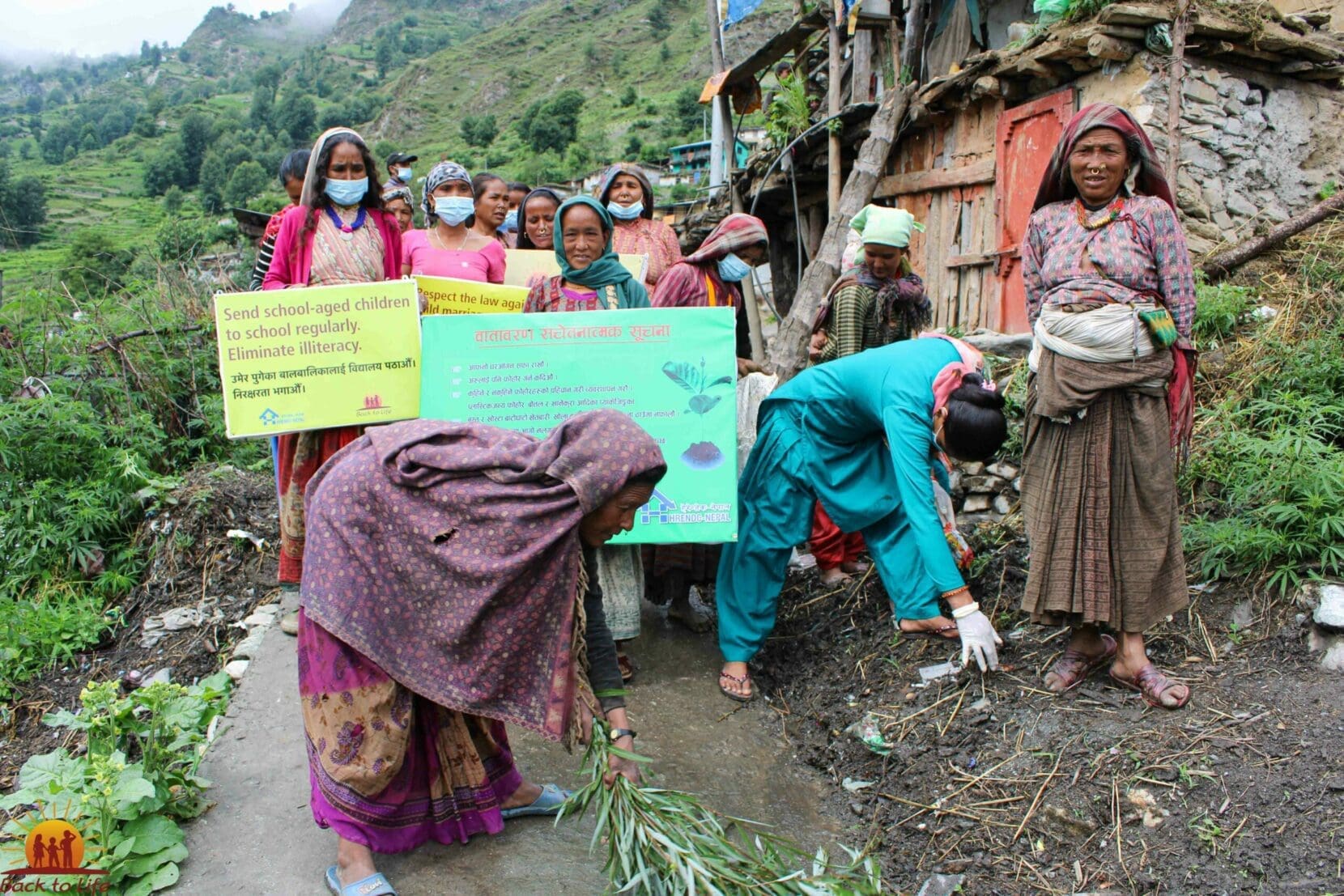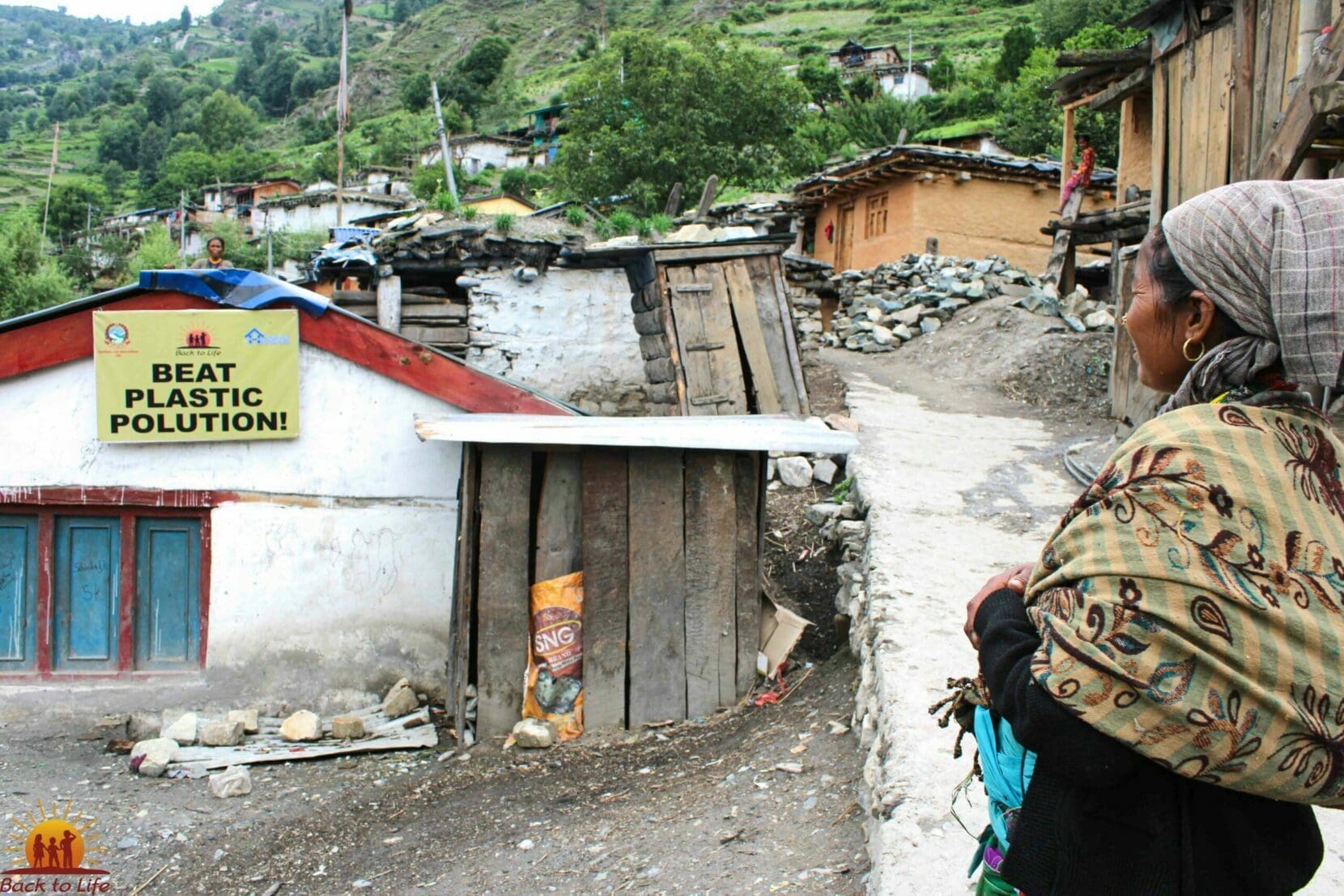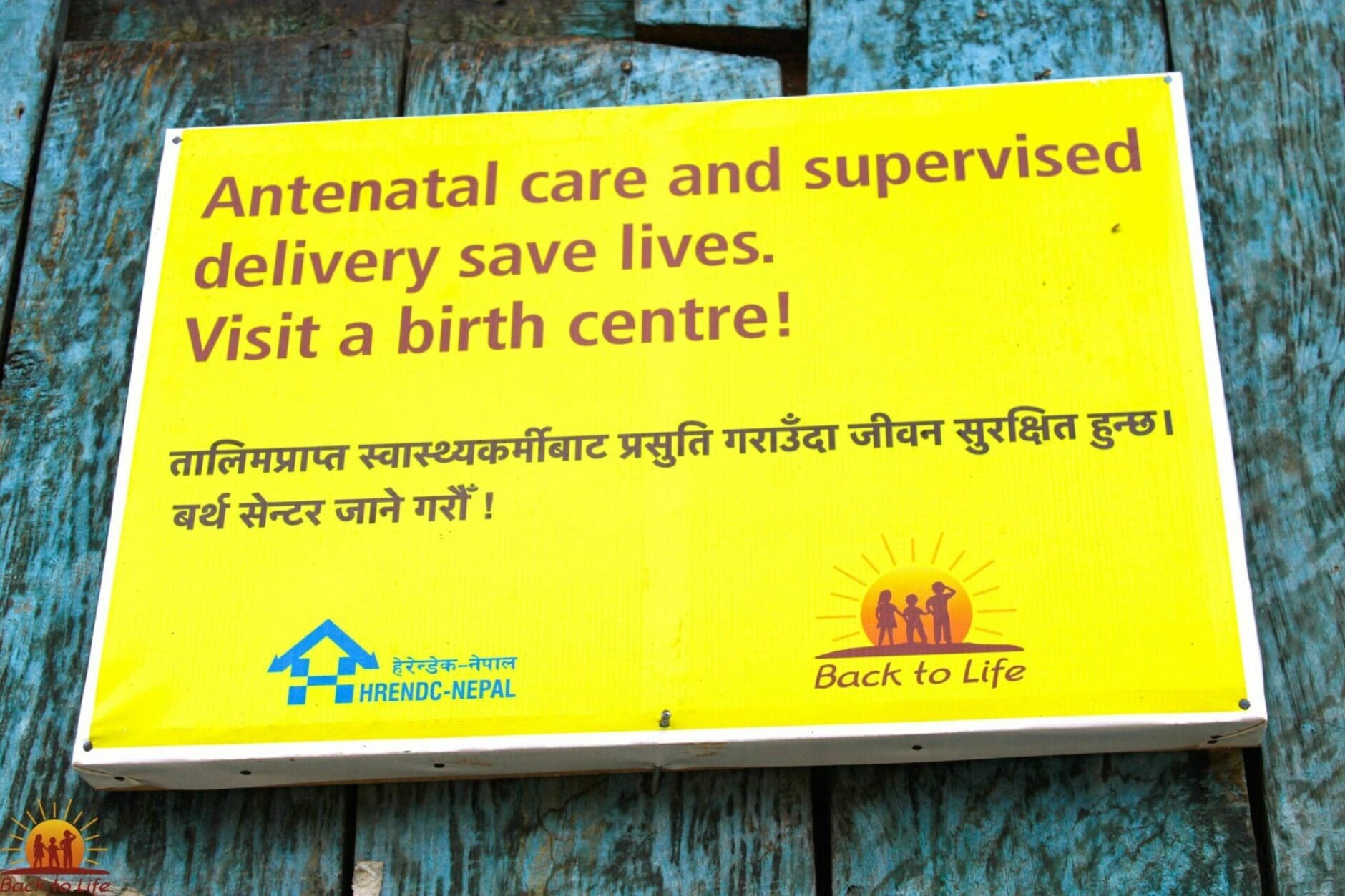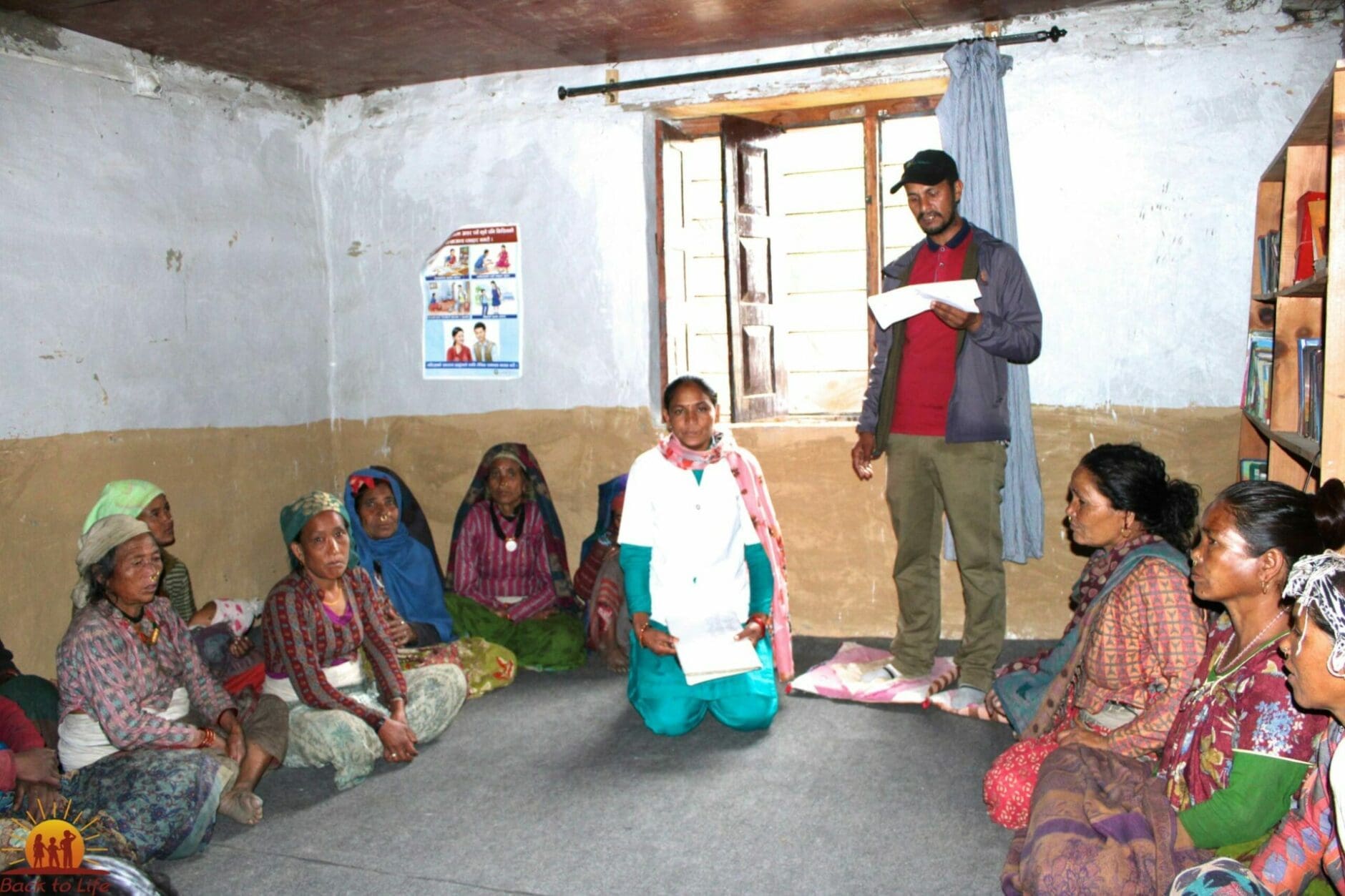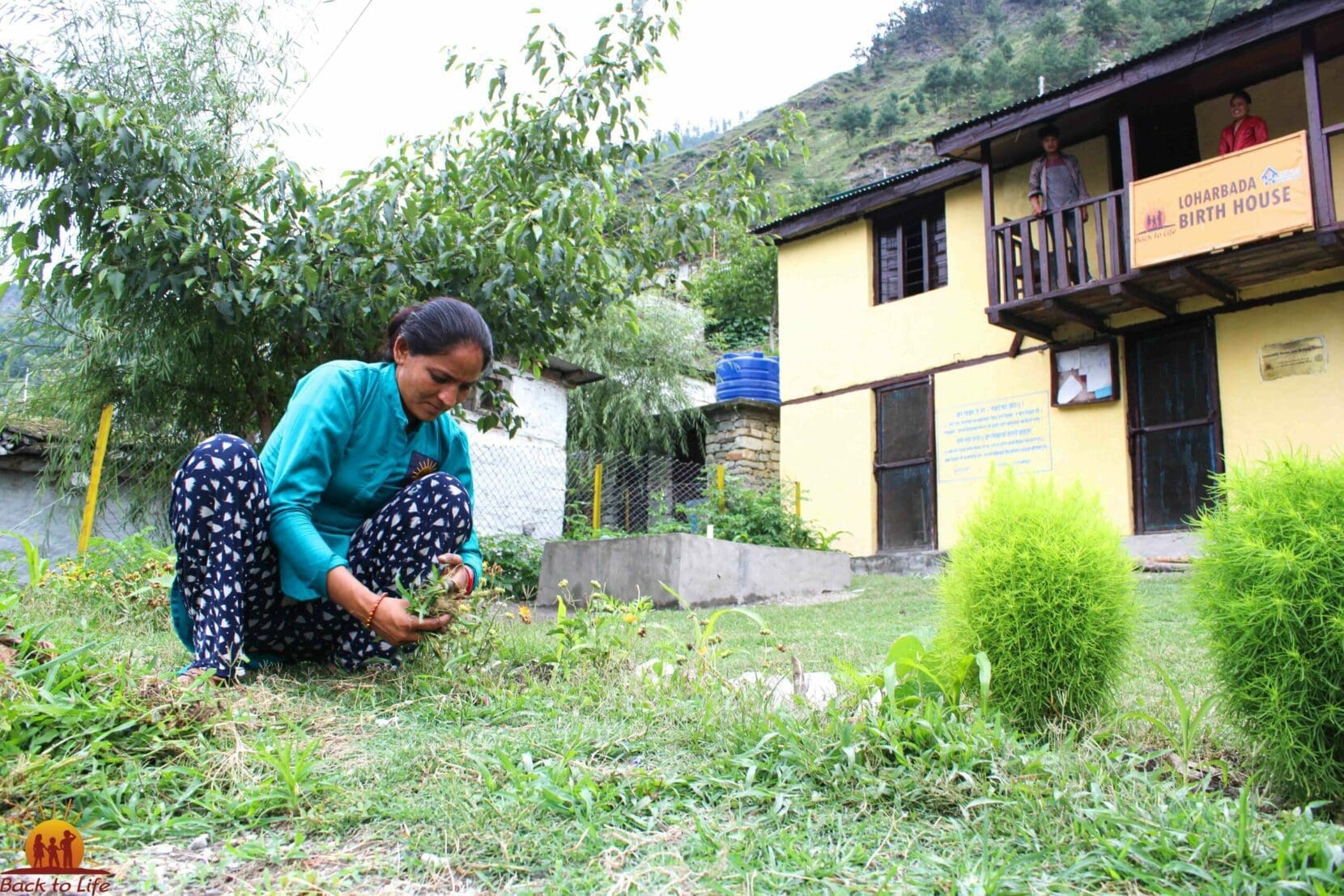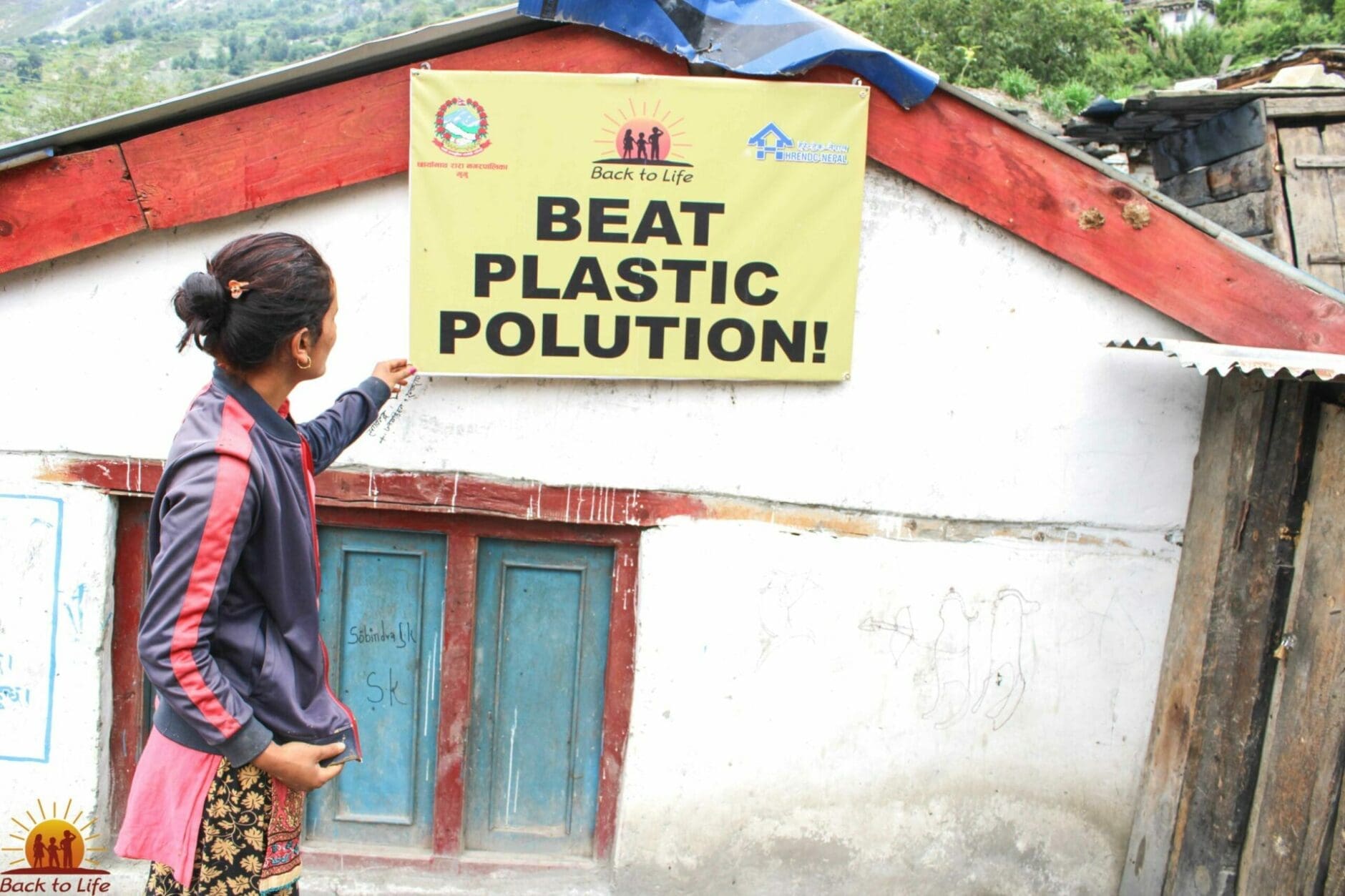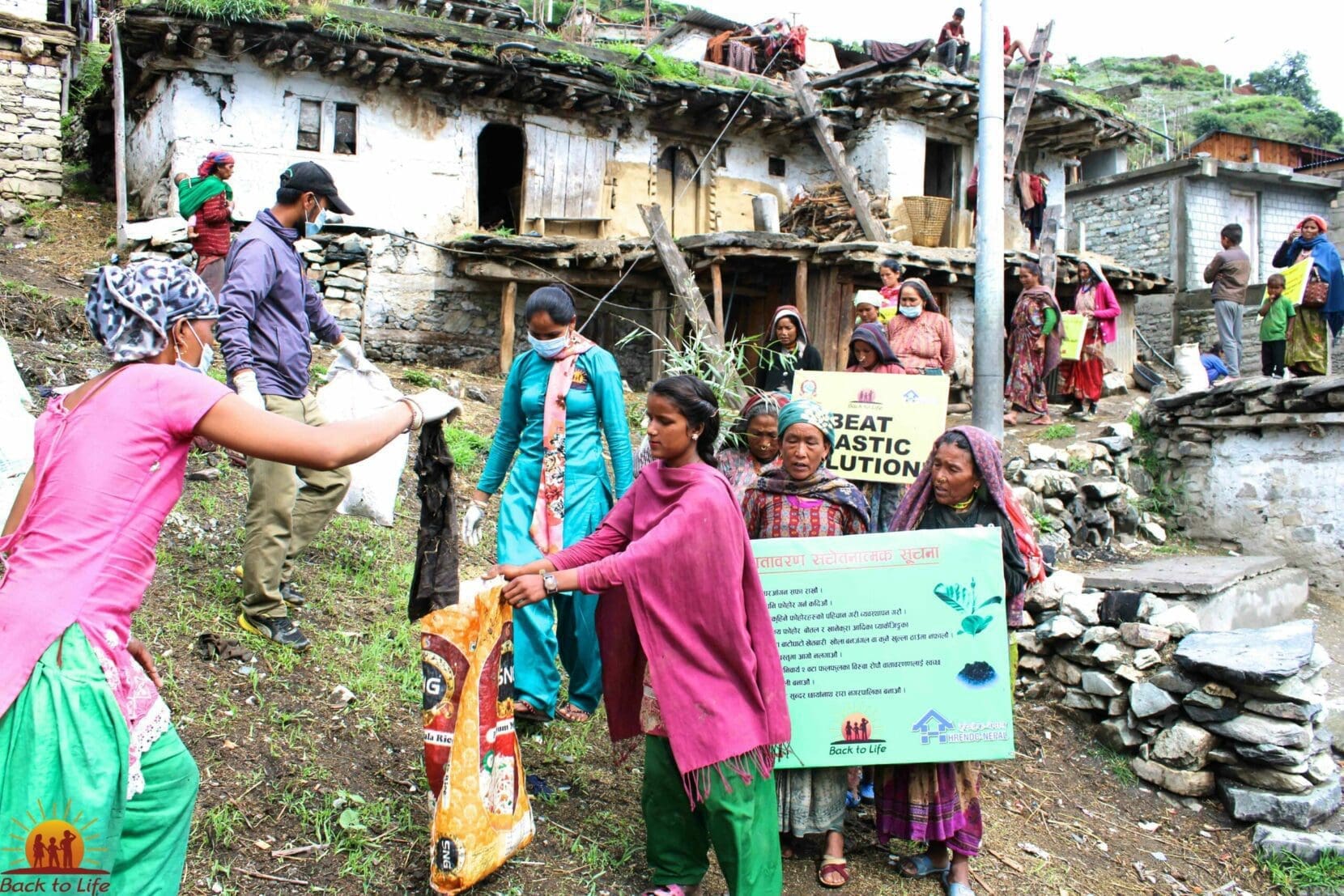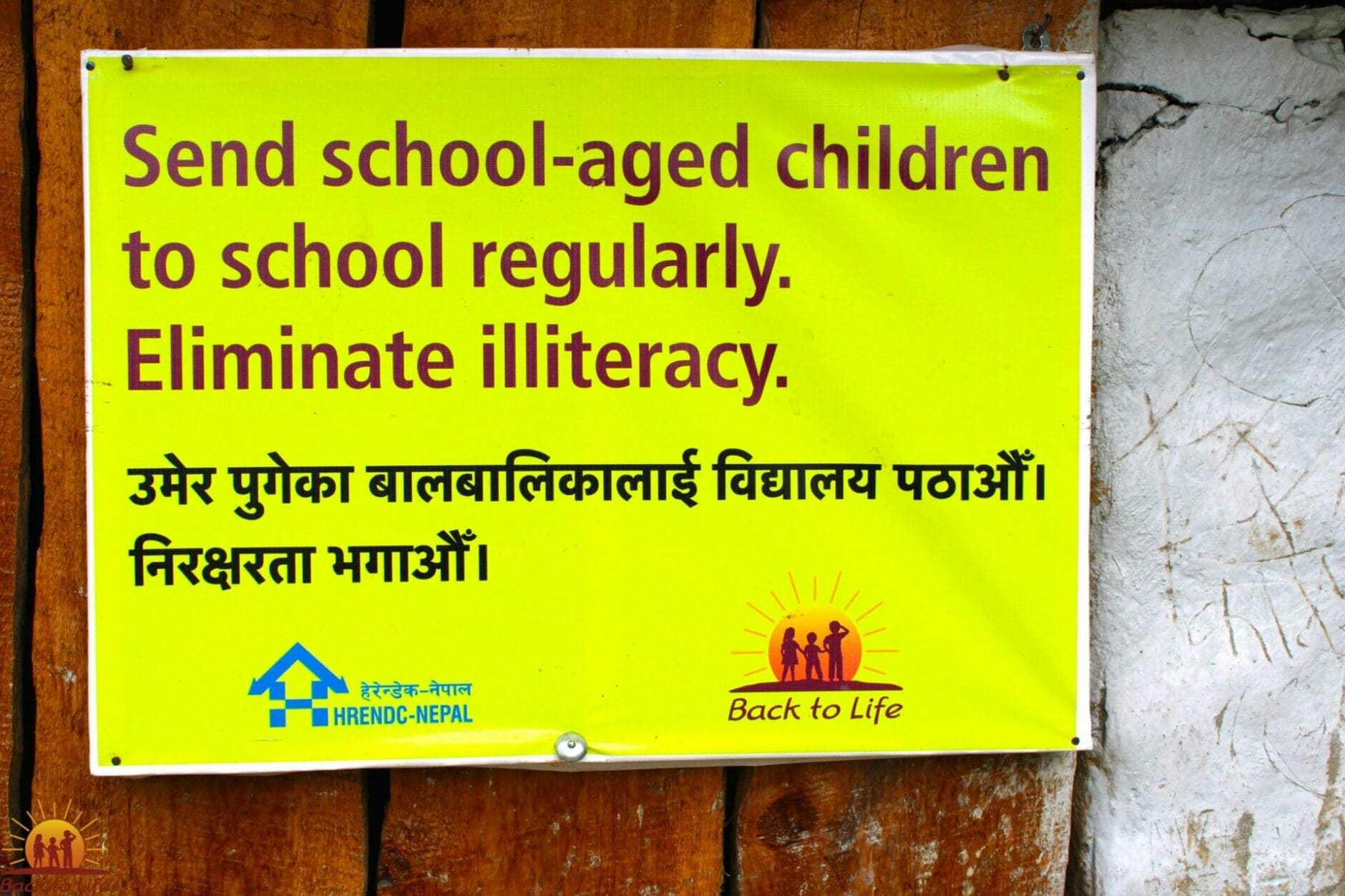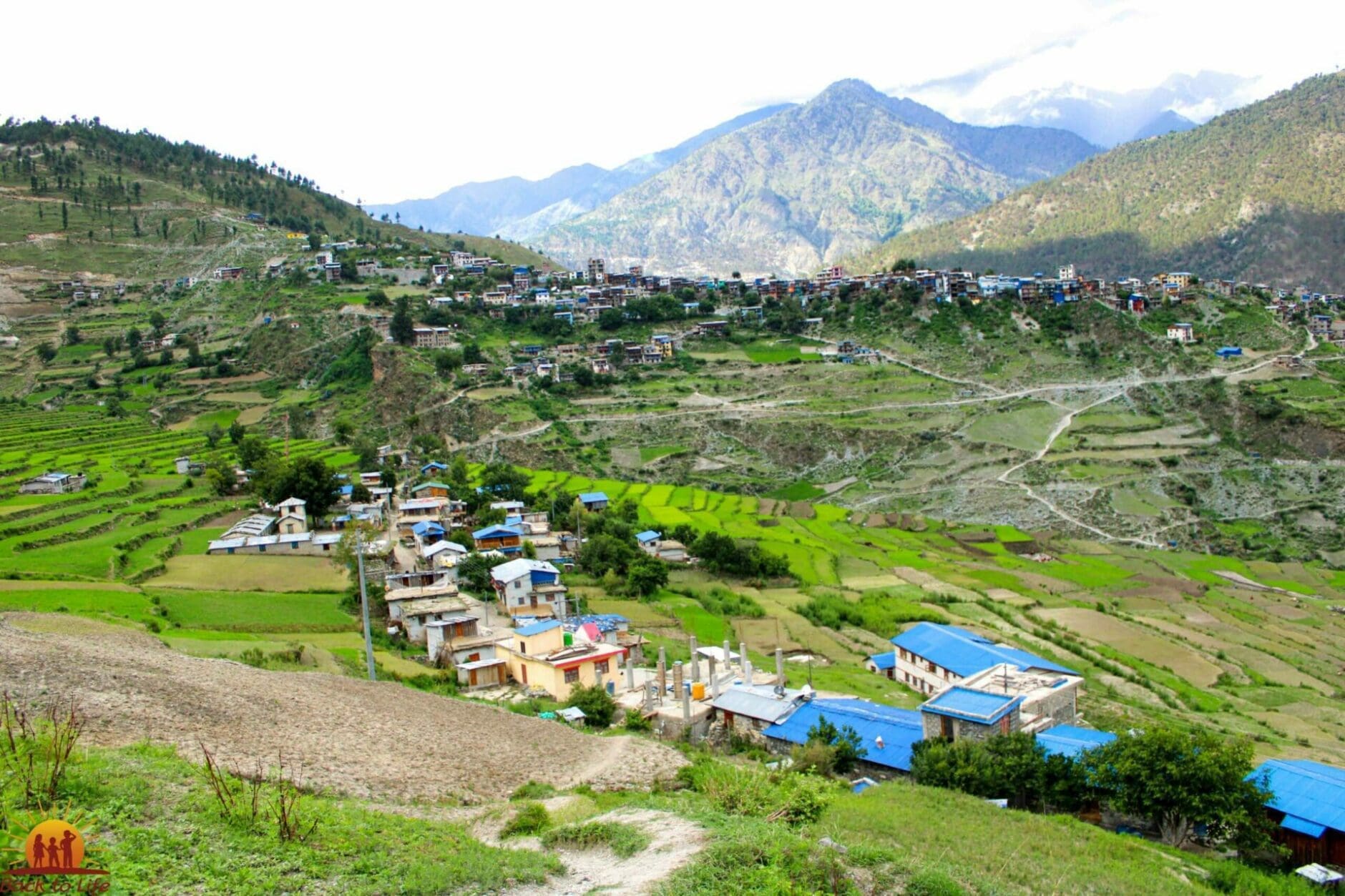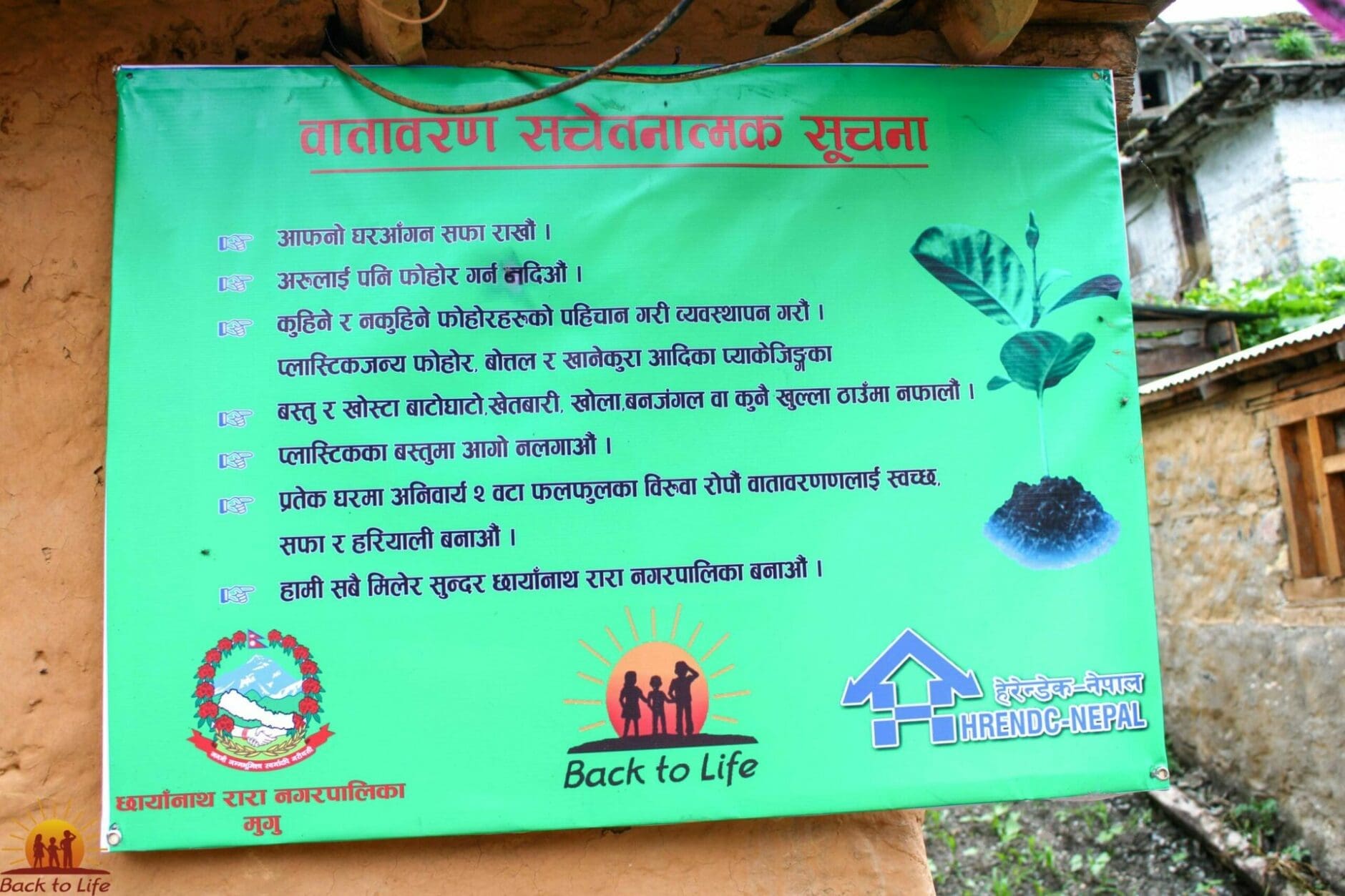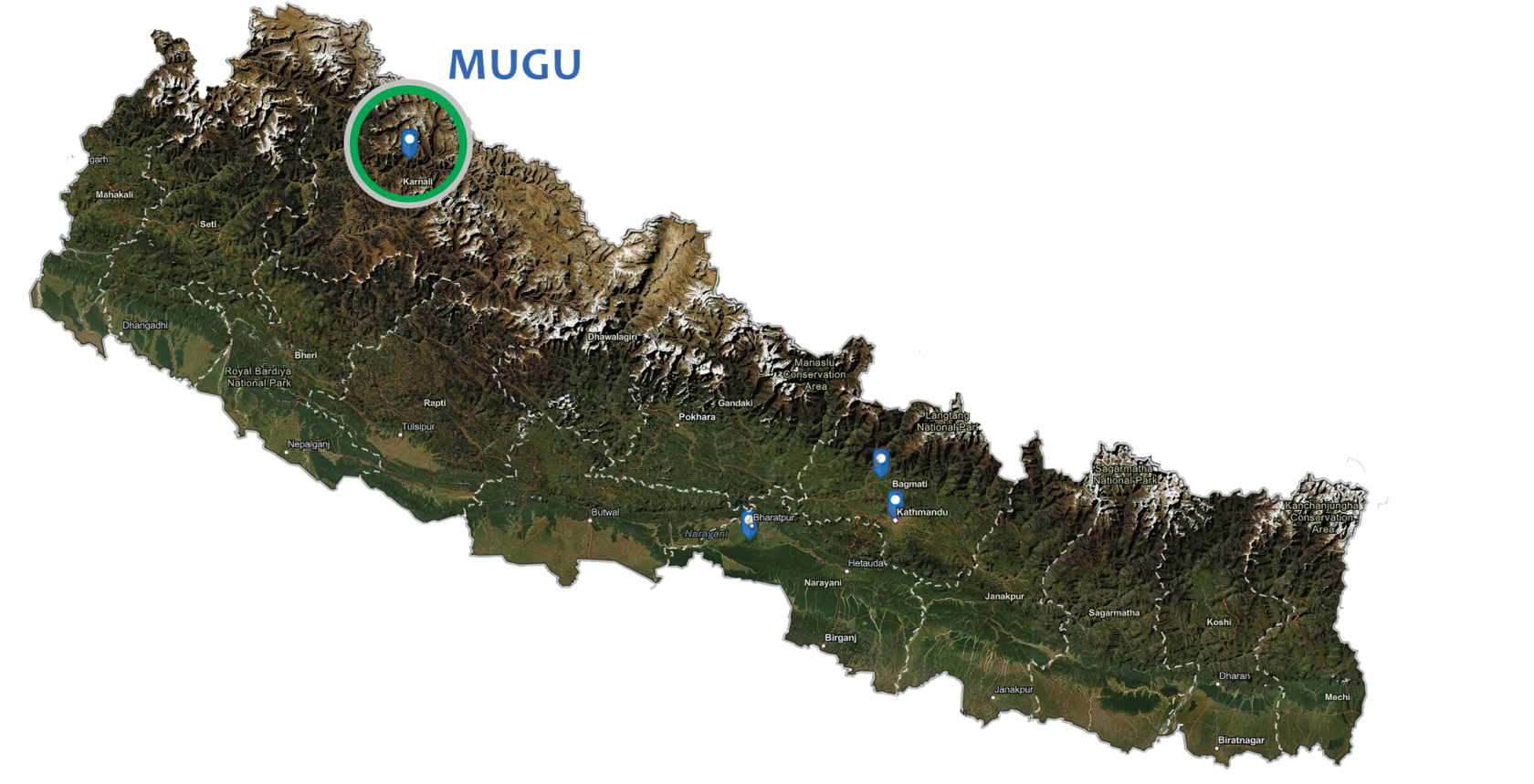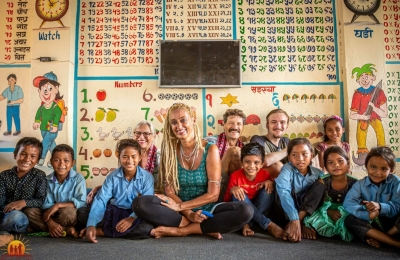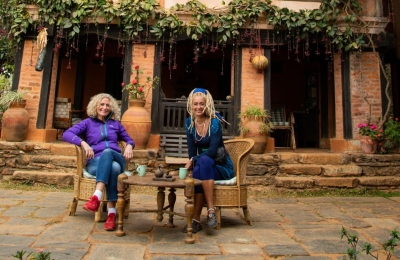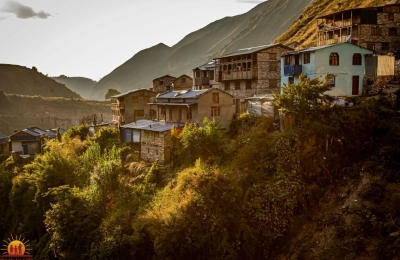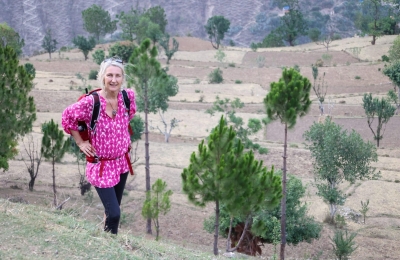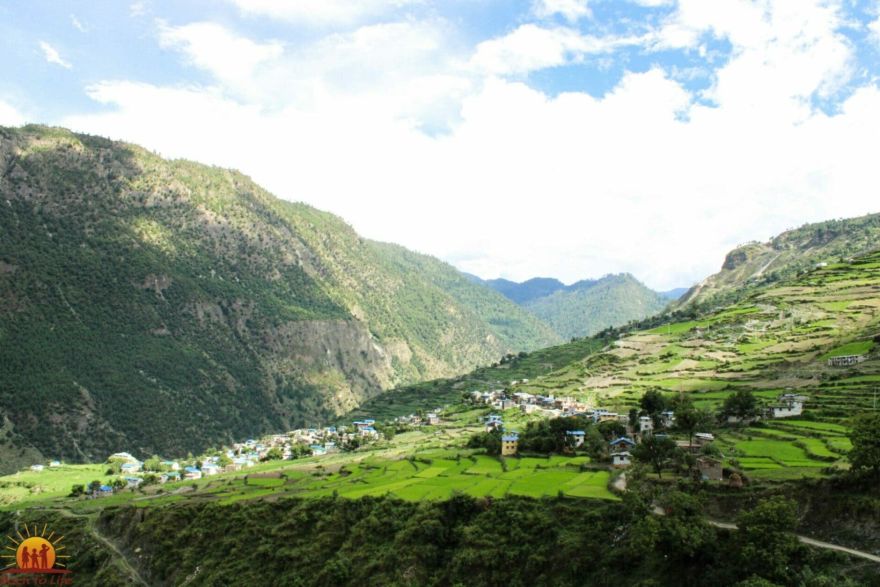
When program director Dikendra Dhakal looks around Loharbada today, he can hardly believe it. “When we first arrived here 10 years ago, not only was the standard of living extremely low, but hygienic conditions were actually non-existent.” The people did their “business” on the doorstep, mushy animal excrement covered the paths, and it smelled like hell. Swarms of house flies sat everywhere: on the children’s faces, on the food. People rarely washed themselves or their clothes, and sewage was simply poured into the alley. The open cooking fire was smoking in and out of the houses, there was no light. The living conditions were unimaginably uncomfortable.
It all started with toilets
Our first project village in Mugu has changed a lot since then. Because helping people to help themselves worked perfectly. It all started with toilets, although the women in the village actually wanted smoke-free stoves and solar lights. So we combined both: we gave out toilet bowls, ventilation pipes and cement and promised anyone who would build a toilet a solar system and a smoke-free stove. No household turned down the offer.
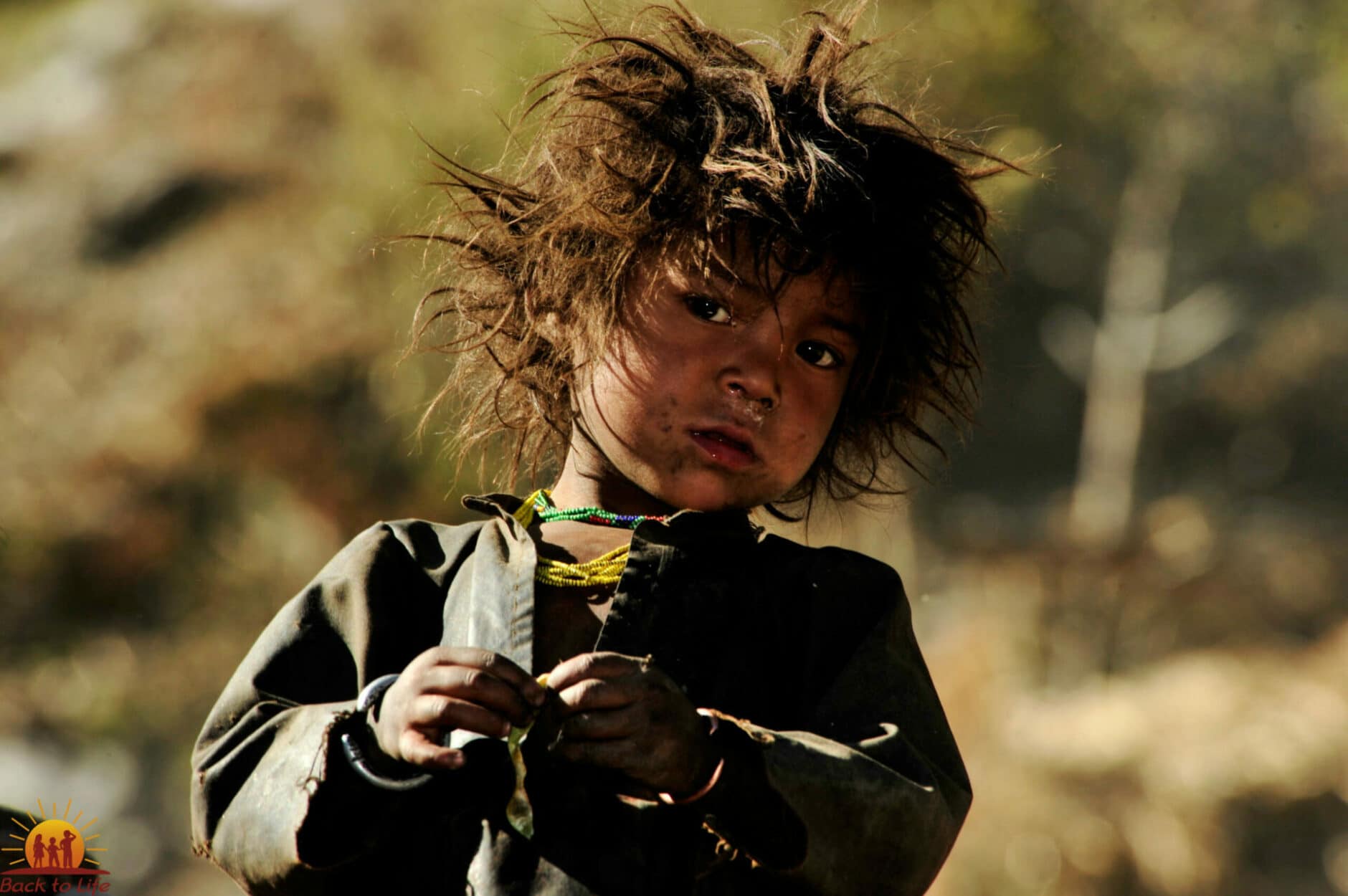

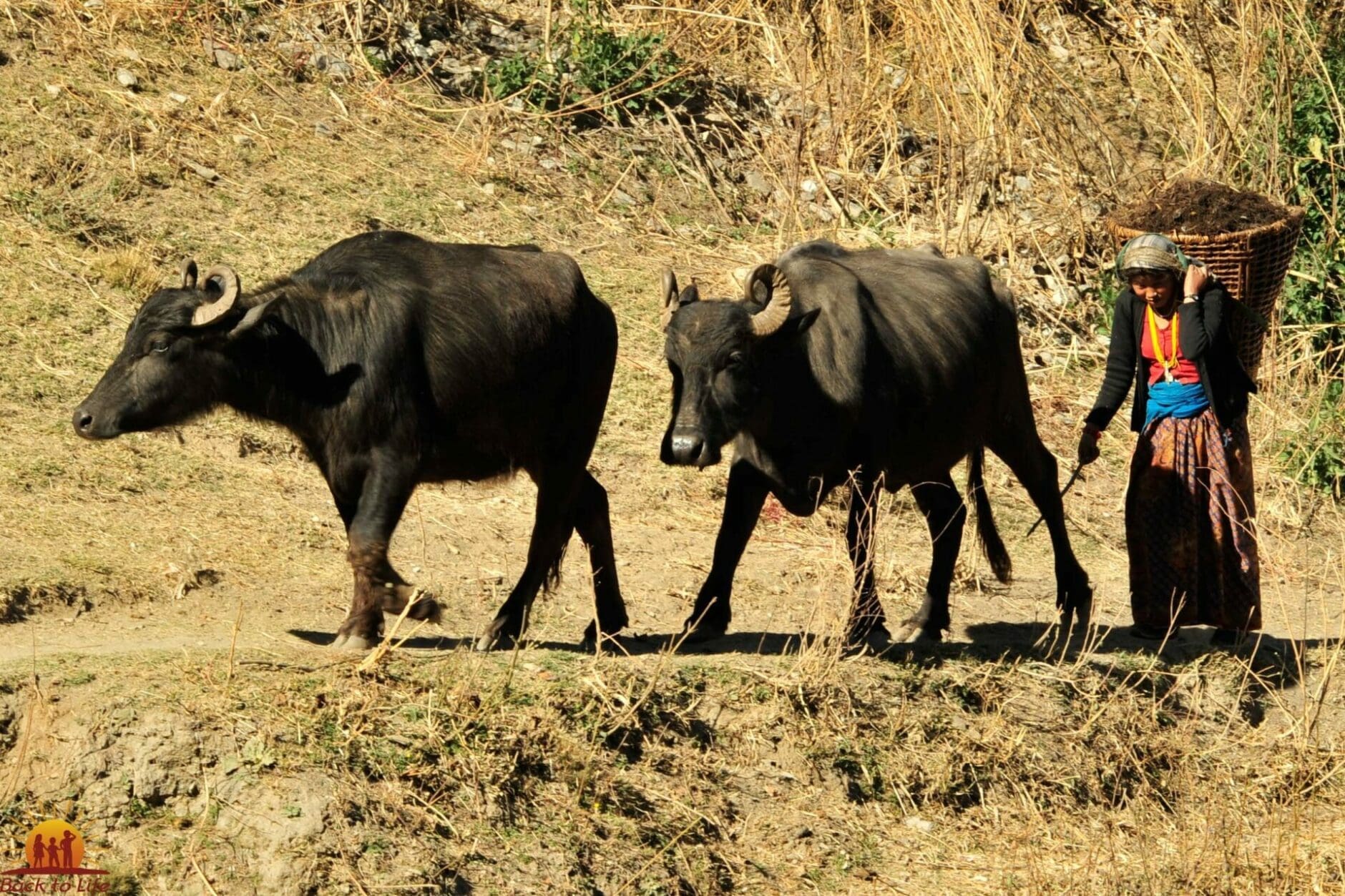

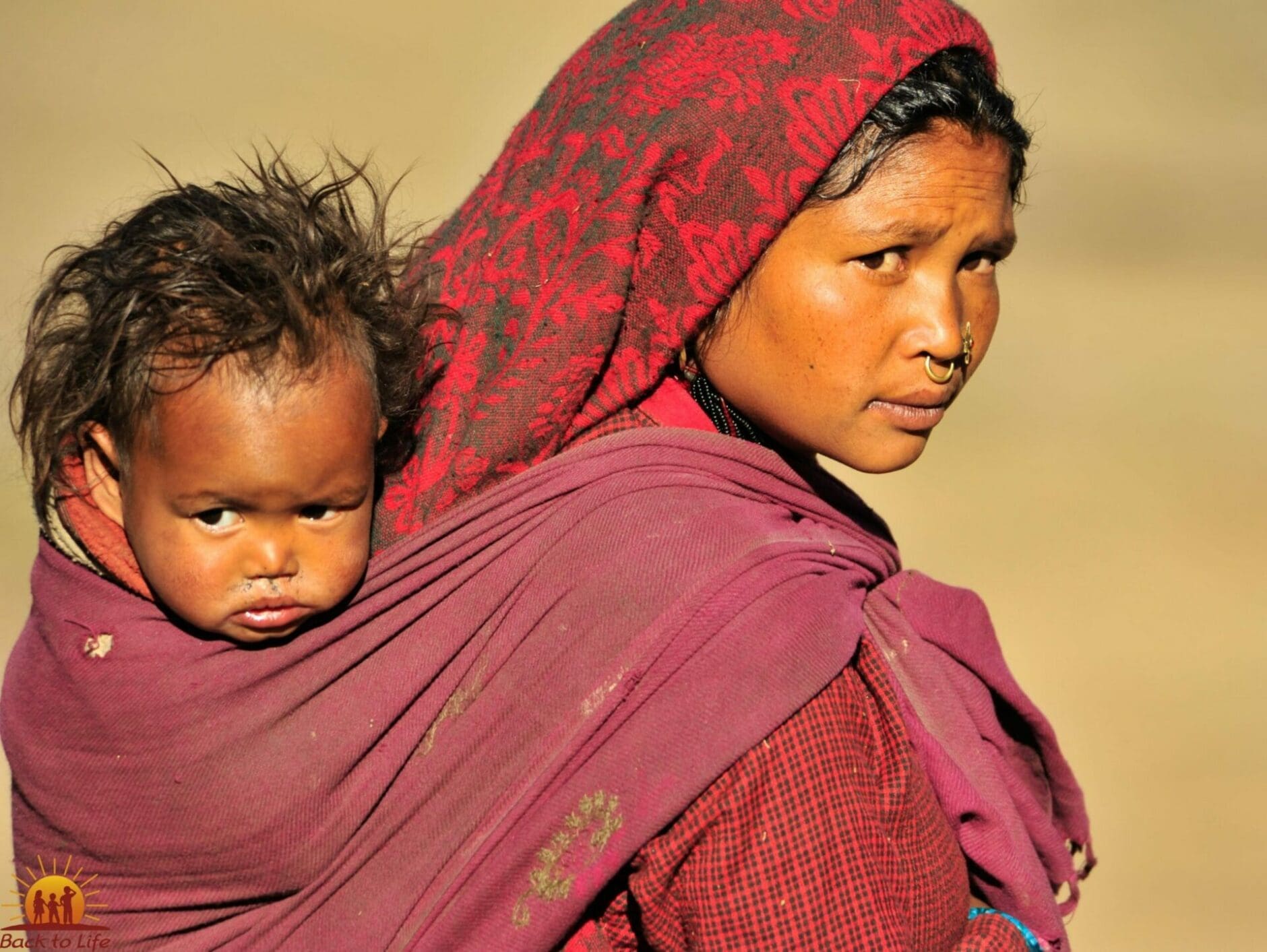

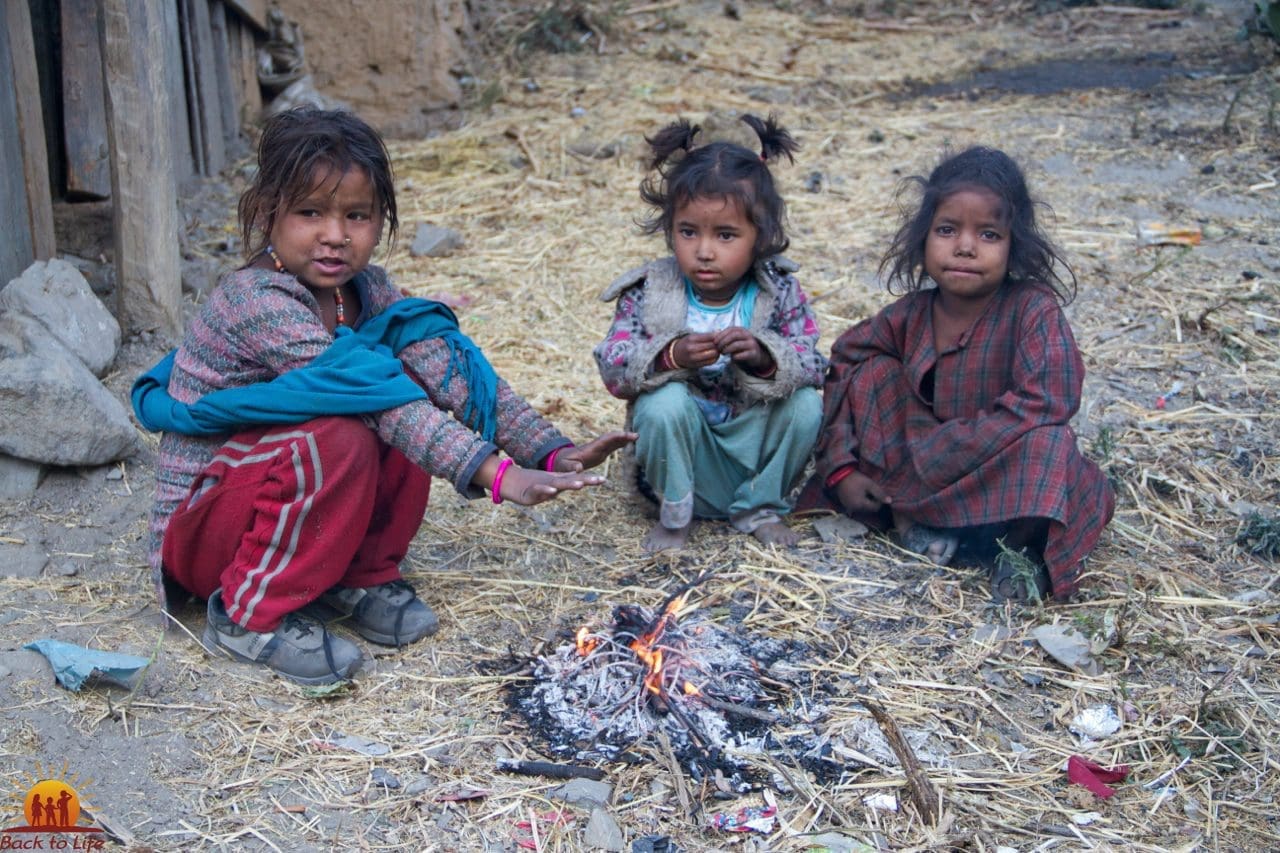

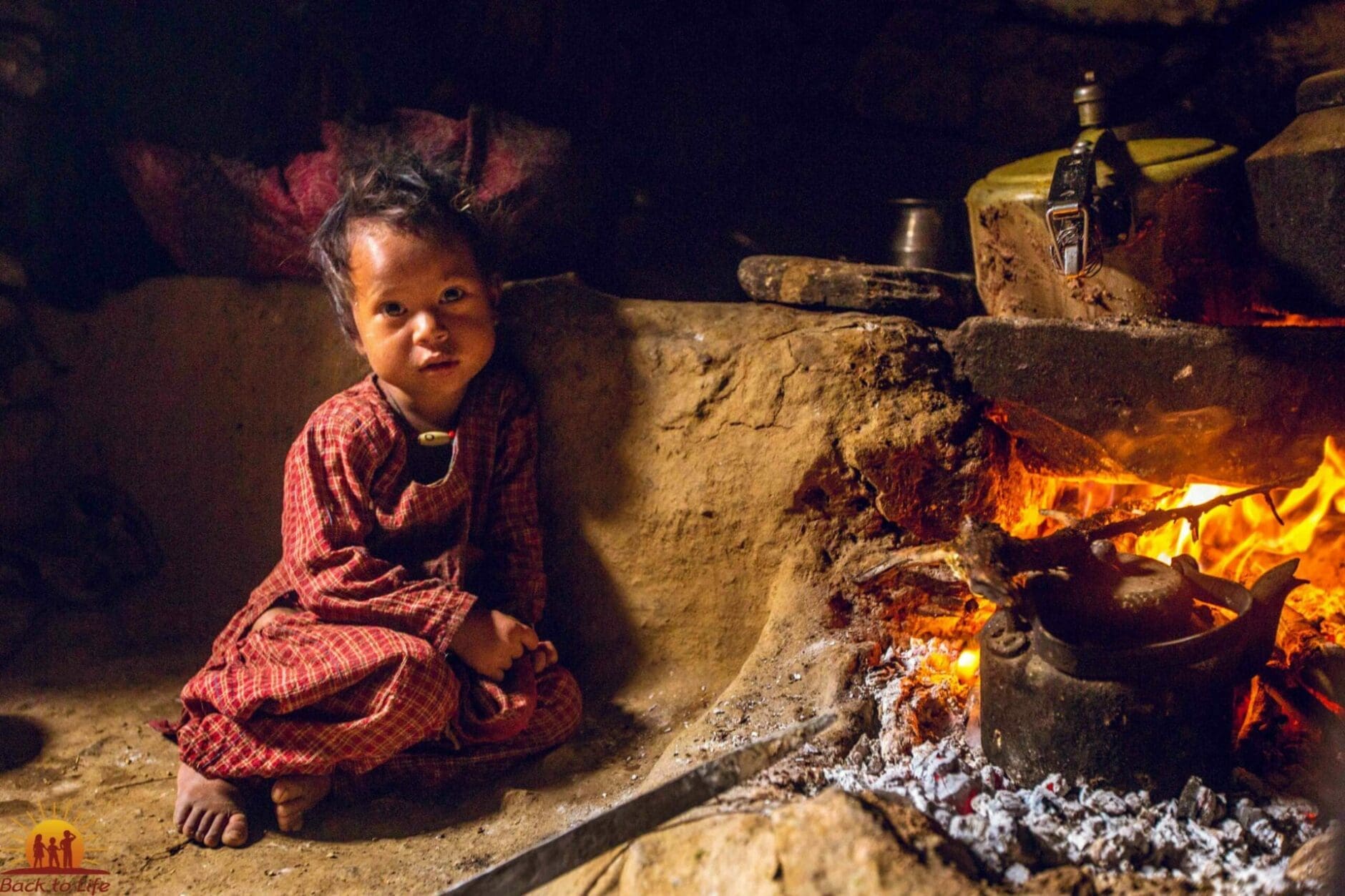

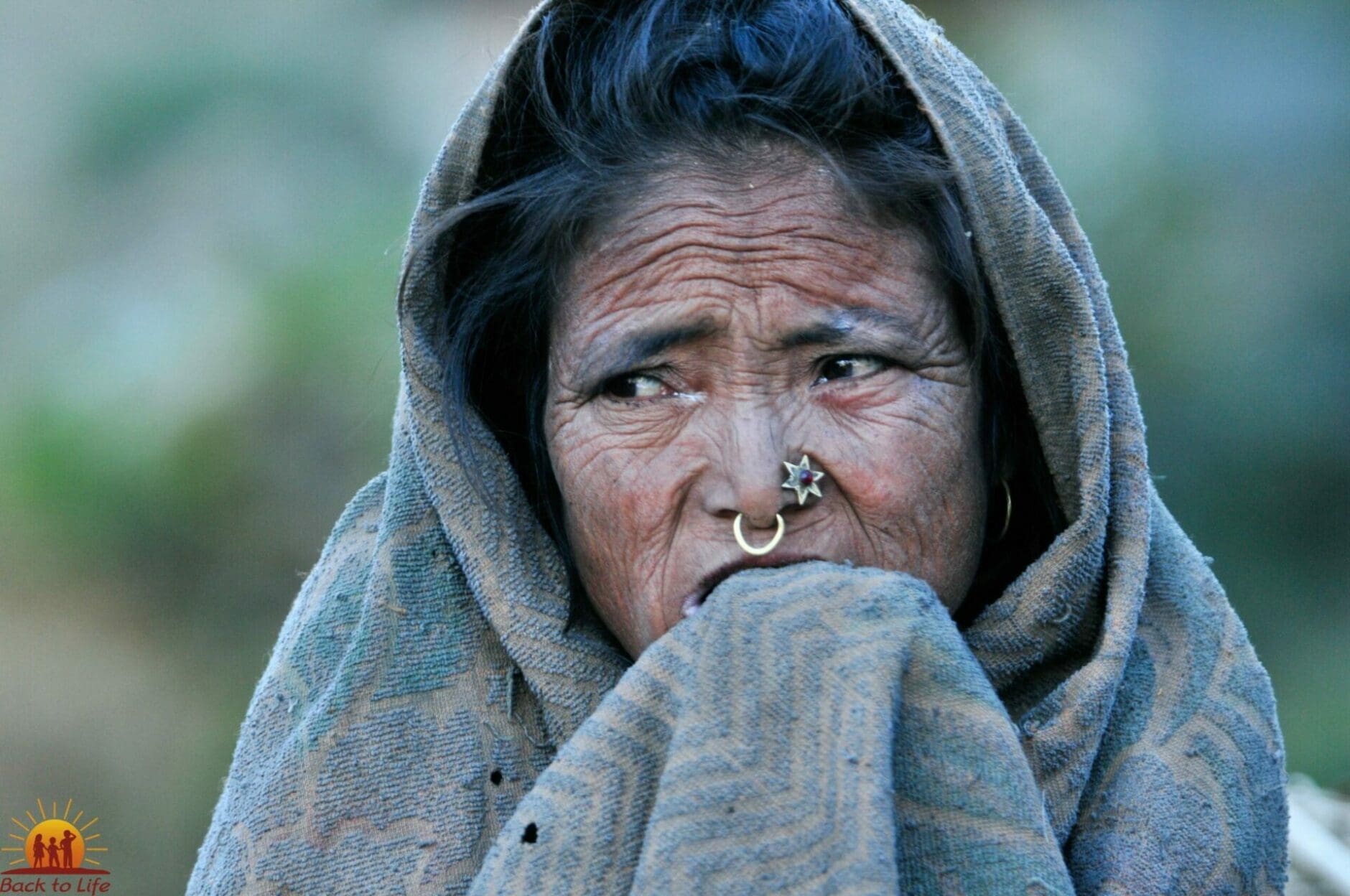

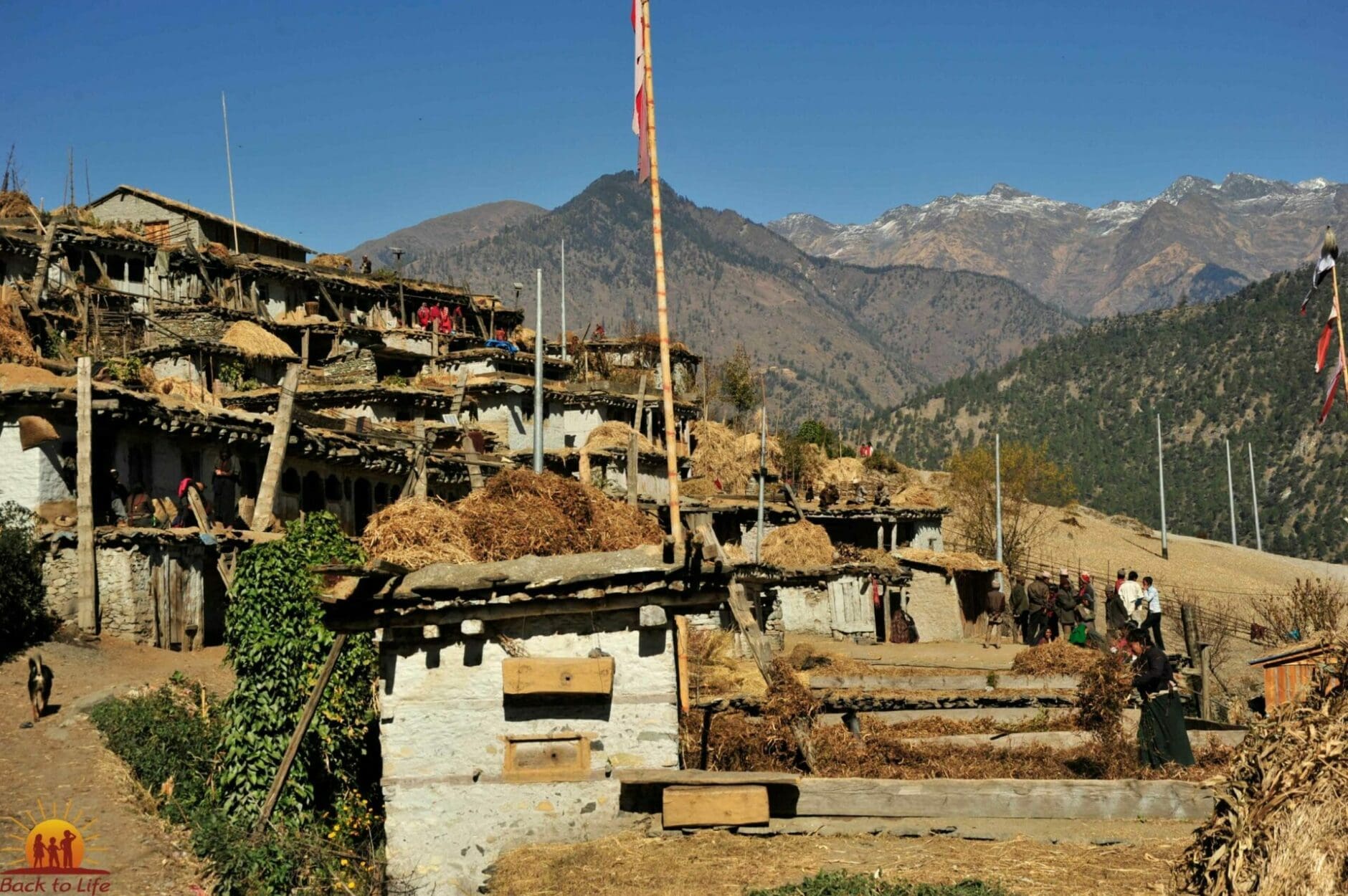

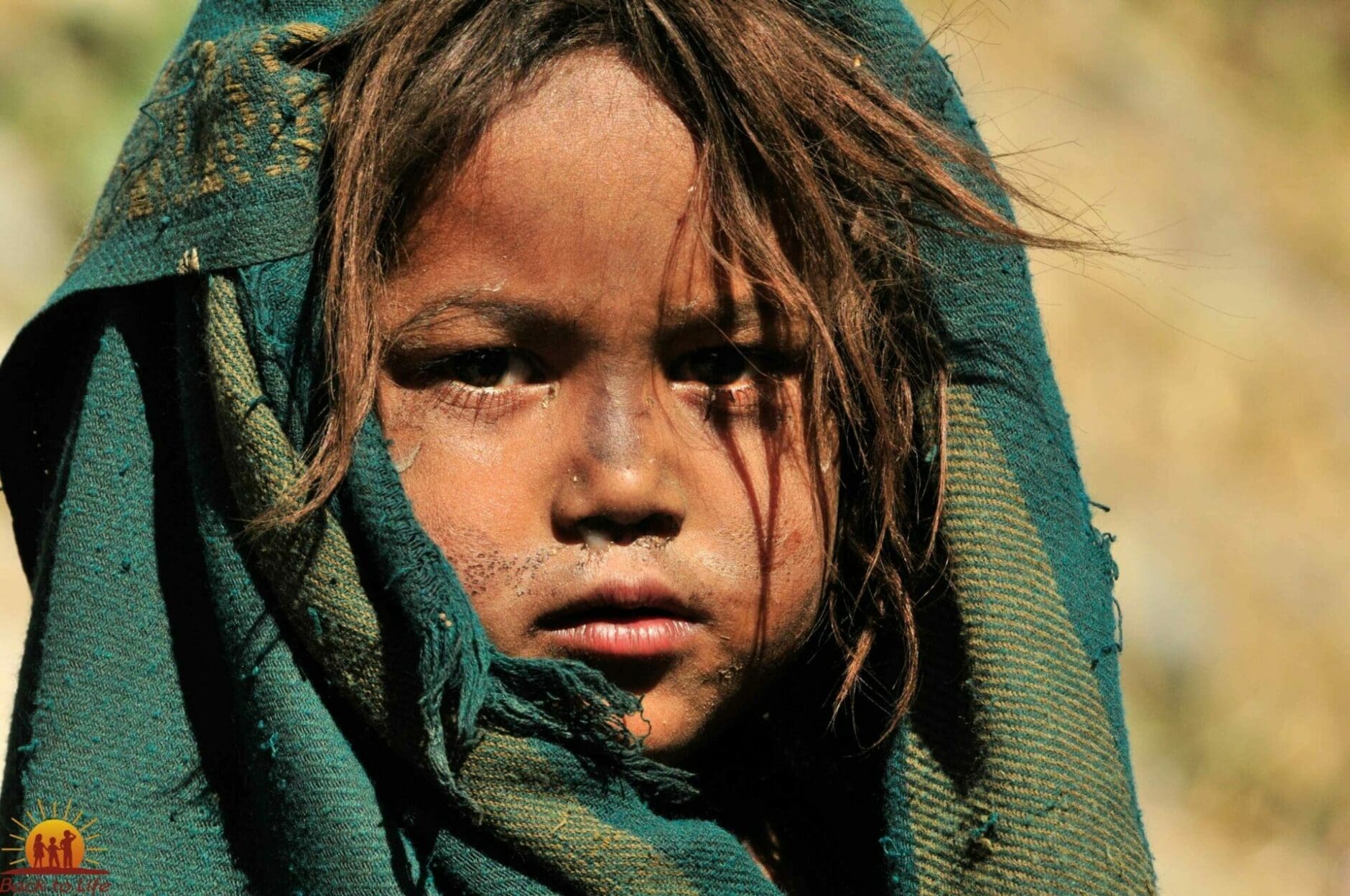

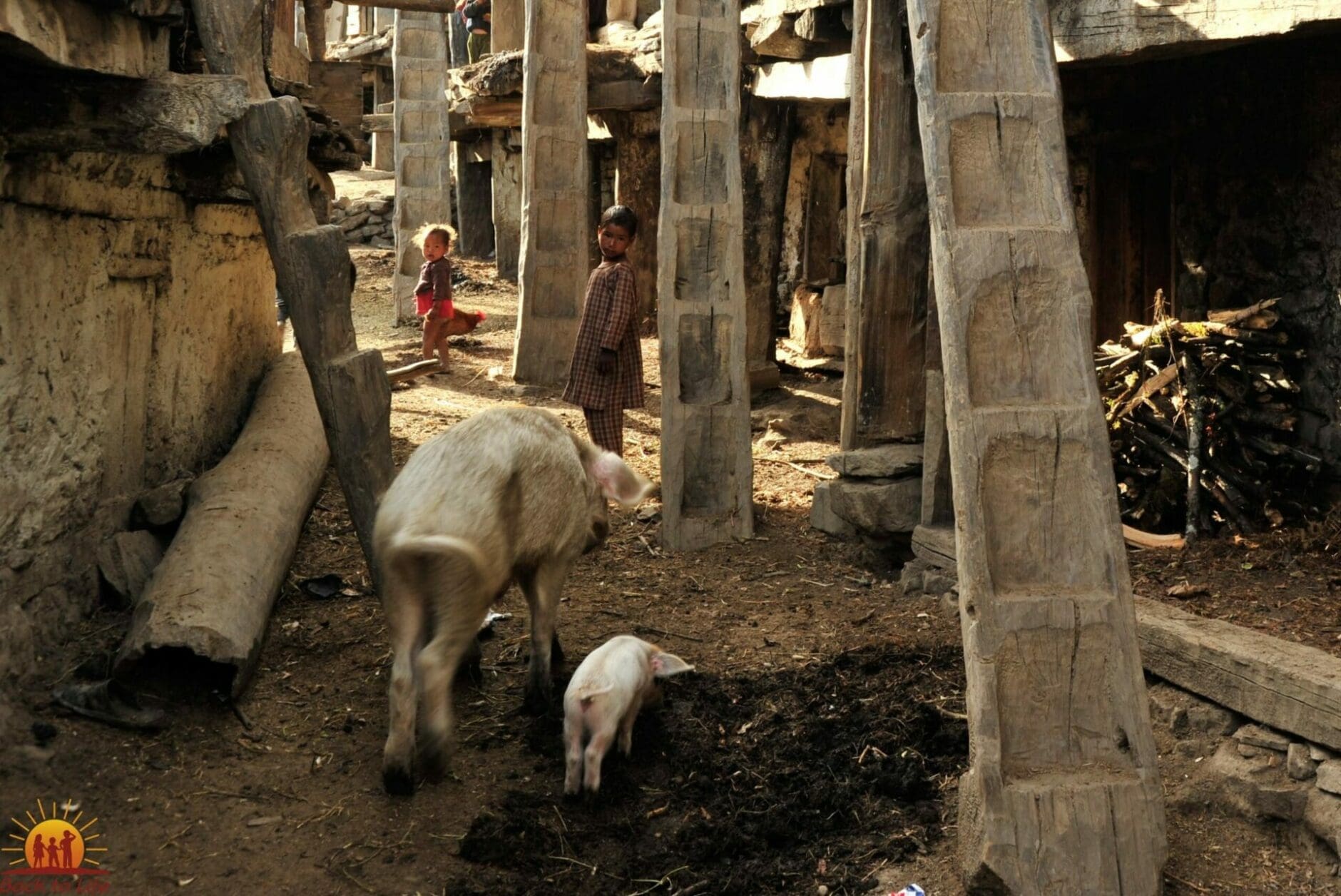

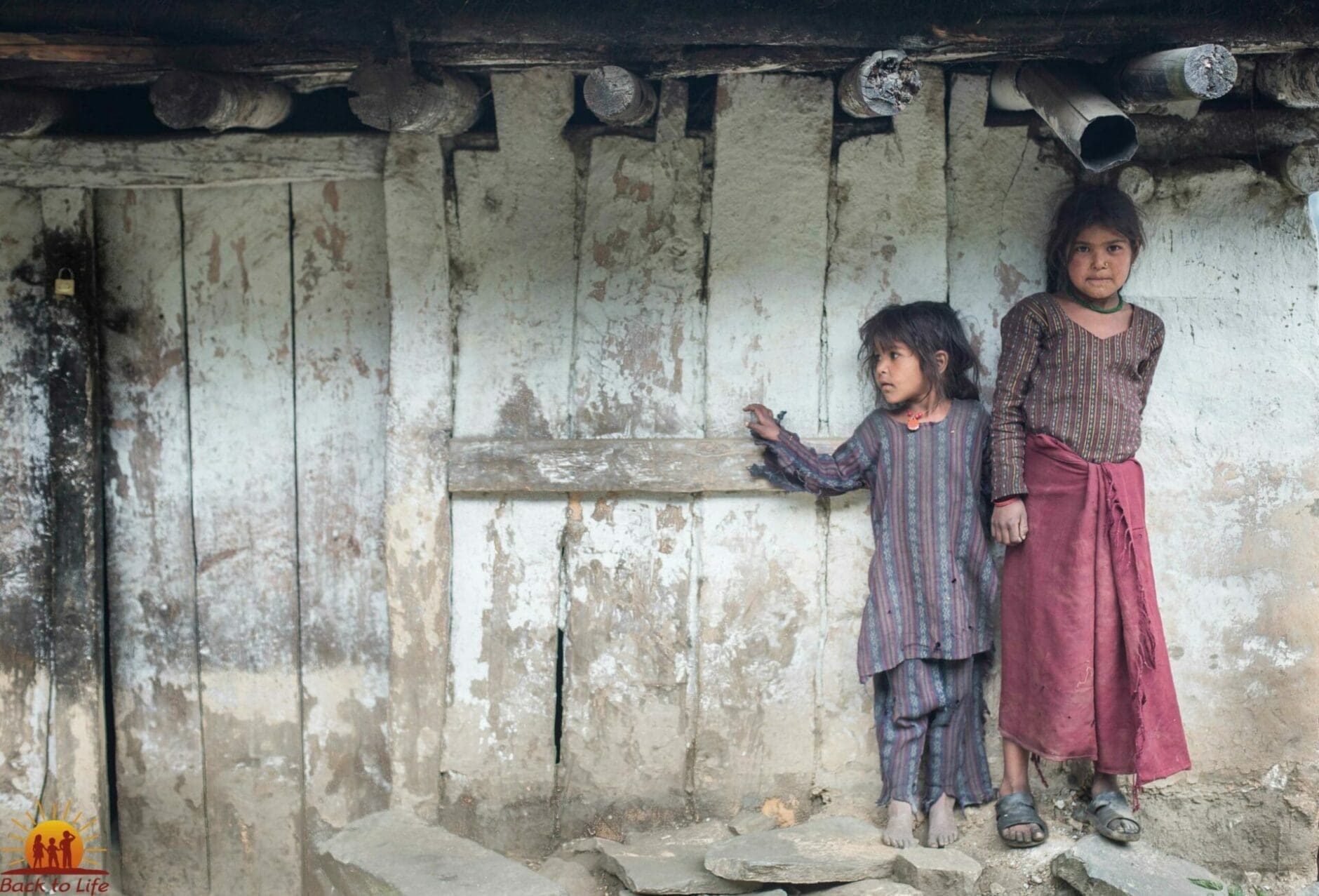

Birth houses as centers for health
When it came to hygiene and health, we took the residents on board again. With their help, Back to Life inaugurated the first health facility in Mugu in 2012: the Loharbada Birth House. Use of the toilets, flushing, cleaning, washing with soap, menstrual hygiene – all information that the employees here have repeatedly brought people closer to. Keeping one’s own environment clean was also a regular part of the educational work. The midwives clearly emphasized the connection between hygiene and health. Coordination with state-organized women’s health volunteers and mothers’ groups was also successfully stimulated and supported.
The mountain village after 10 years
Today the view of Loharbada is clearly different: With smoke-free stoves and solar lamps, the pollution of the houses as well as the environmental pollution have decreased significantly. The paths are clean and regularly cleaned by the community. Places that were previously inaccessible due to the excrement are now used for community meetings or for playing. Personal hygiene has become normal and laundry is a matter of course. Women, men and children not only look healthier, they are. Mugu, the place that used to be almost cut off from the outside world, got connecting roads to the neighboring areas built through a government program. This establishes the connection to the globalized world, which offers the residents many other options. However, new problems are now emerging: Plastic waste is an issue that we are now countering with the “Beat Plastic Pollution” campaign. So there is always something to be done to improve the situation of the people here. That is exactly why we are still active.
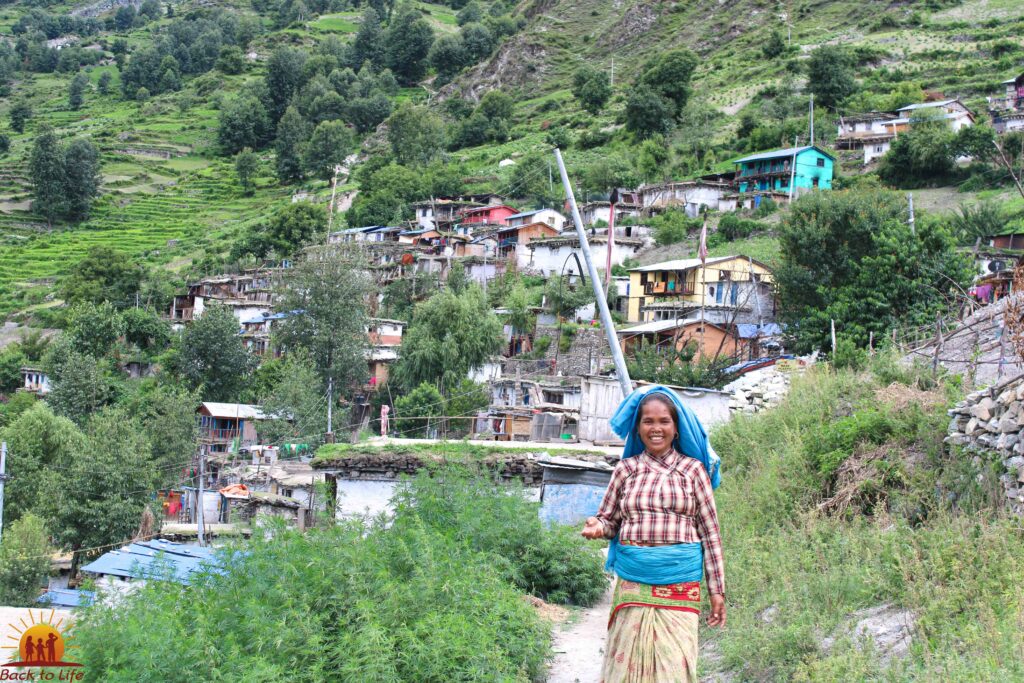
Like us, the residents of Loharbada are proud of how their village has changed. Fortunately, one thing has remained the same: the smile people give you here despite the harsh living conditions.
